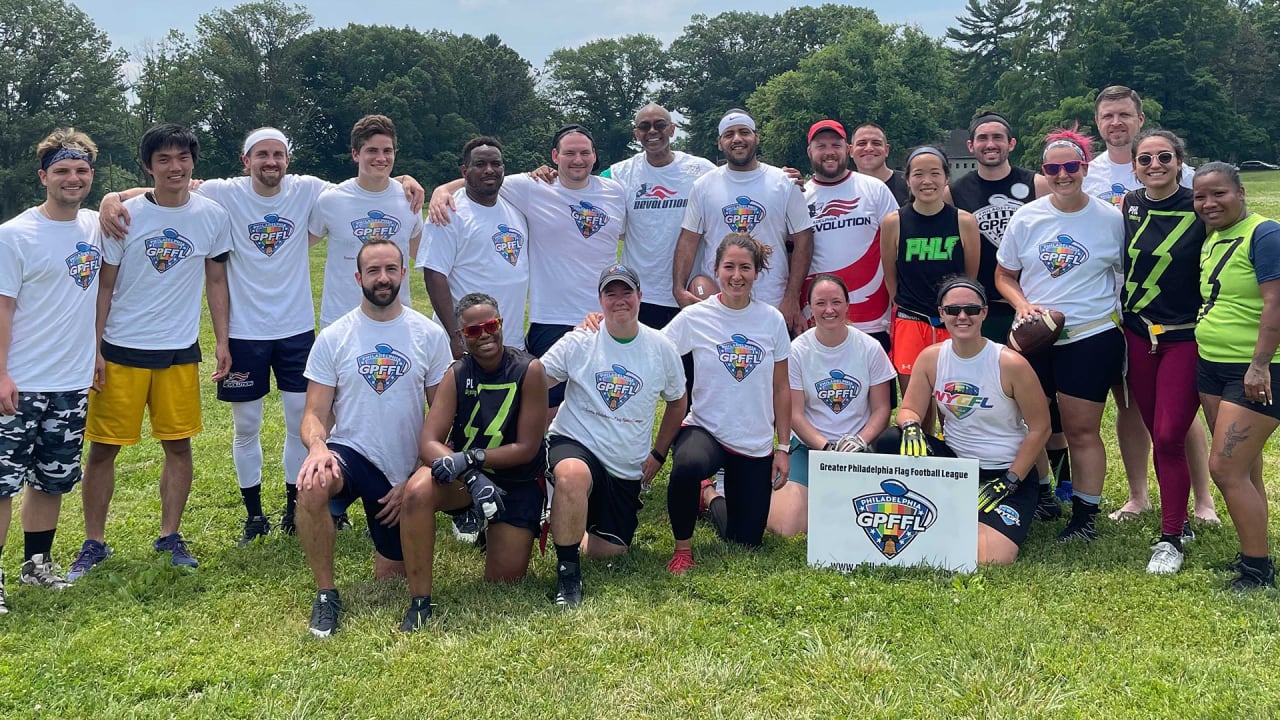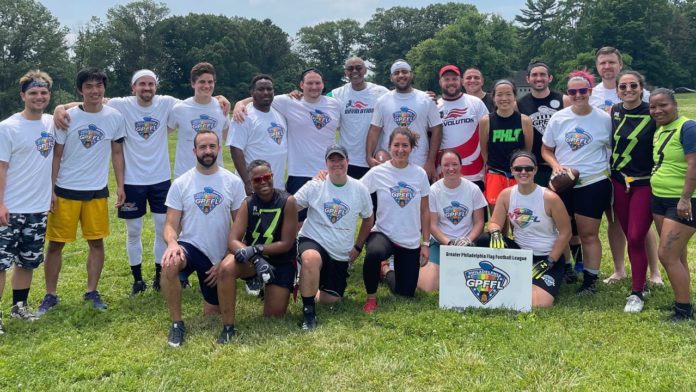
Coming out as LGBTQ+ is not a one-time experience. It is, in fact, a series of experiences that occur whenever an LGBTQ+ person meets someone new. Eventually, that individual reveals who they truly are, leaving themselves vulnerable to whatever reaction may follow – positive or negative.
“It’s like a constant boxing match and you’re just hoping someone doesn’t catch you with a haymaker and knock you the hell out,” Scott described.
Coming out can be a lifelong experience that has caused LGBTQ+ members to be physically harmed or even murdered, instances of such have seen an unfortunate uptick in recent years.
That experience is much less combative when joining the GPFFL, as it welcomes players of all backgrounds and skill levels.
“I personally didn’t how I’d fit in just anybody’s league, so the fact that the GPFFL was an LGBTQ+ league kind of just gave me a better sense of safety,” said league secretary Matty Lehman. “It kind of took a wall down.”
Once that wall is taken down, the bonds begin to form.
“I made friendships through the league I otherwise would not have had,” said Isaacs, a former league commissioner. “People say, ‘Oh, you do so much for the league.’ I could never give back to the league more than it has done for me. That’s how I’ve always felt.”
That sense of community is built into the structure of the league. At the beginning of each season (fall and spring), a pair of captains are selected for each team. The pairings are made by the league with the intention of putting people from different backgrounds together. One captain may be LGBTQ+ where the other is straight, or one may be a highly skilled player where the other is not.
A draft is then held for the remaining players in the league and the teams are formed. The league typically hosts a party at a local establishment to celebrate the beginning of a new season and have players meet their new teammates.
The teams then play two games per week for the regular season, followed by a postseason where a champion is crowned. The season is capped off with another big party.
Once that season is done, the teams are then broken up, a new group of captain pairings is selected, and the entire process starts all over again.
Having new teams every season helps the league maintain competitive balance, as there is never one dynastic team dominating the league season after season. It also helps the camaraderie, as your opponent may one day become your teammate and vice versa.
“I do love football so much, but I think what’s kept me hanging on for so long and what makes me feel like I have something to provide and give to the league, almost like a responsibility to show up every week and welcome the new players, is that sense of culture and community that’s built around the league,” said Ali Doran, who met her husband and GPFFL assistant commissioner Mitchell Doran through the league. They are one of the many couples that connected because of the GPFFL.
“To find love in a flag football league is kind of crazy, but it’s like a life partner. That’s wild,” Mitchell Doran said.
Mitchell Doran is one of the league’s many straight allies, which Lehman believes are a vital part of the league.
“The allyship has been very impressive and I don’t know that you’d find that in a random group of people,” Lehman said.
“It’s a very unique situation,” Lehman added. “It’s also really special to see it and it’s really important that we continue to build our culture around that and really embrace it.”
Jae Clark, another straight ally, has played in a variety of adult flag football leagues, but has yet to find one that replicates the feeling he gets from stepping onto the field in the GPFFL.
“Here, it’s different,” Clark said. “It’s more like, ‘Yeah, we played the game, but let’s all go out and have a beer or have a couple drinks after.’ Like, you actually get to know the person.”
That sense of community is something Scott cherished so much that he ran to become the league’s commissioner, just so he can help maintain it.
“So many people depend on that league for comfort, for a release, and I had the opportunity to continue to keep the doors open, so to speak. I jumped at it,” he said.








